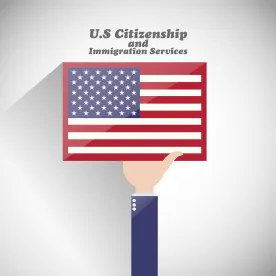On December 2, 2020, the Ninth Circuit Court of Appeals upheld preliminary injunctions blocking USCIS from enforcing the “new” Public Charge Rule in 18 states and the District of Columbia.
The Court found the rule was inconsistent with any reasonable interpretation of the statute which requires long-term dependence on government support, not temporary resort to supplemental non-cash benefits. It opined that:
Until recently, the judicial and administrative guidance has reflected the traditional concept—rooted in the English Poor Laws and immortalized by Dickens in the workhouse of Oliver Twist—of incapacity and reliance on public support for subsistence.
The Court also found the new rule was “arbitrary and capricious” because the Administration failed to adequately consider:
- The financial effects of the new rule not only on legal immigrants, but also on the states to which they would turn after withdrawing from federal programs to protect their immigration statuses;
- The effects on public safety, health, nutrition, hospital resources, and vaccination rates especially in this time of COVID-19; and
- The abrupt change from the original 1999 guidance that focuses on long-term dependence.
The new Public Charge Rule has been controversial since it was first proposed by the Trump Administration. Characterized as a “wealth test” by immigration advocates, the rule has been the subject of litigation in various jurisdictions. There have been injunctions and stays of injunctions. This has led to a situation where one month, the rule was effect in some jurisdictions, but the next, it was not, and then a little later, it was in effect again. This endless back and forth has meant that applicants for Adjustment of Status and nonimmigrant visas are never quite sure whether the new Public Charge Rule will apply to their applications or not. This uncertainty has been particularly impactful in a year when immigrant visas became available for certain heavily backlogged categories and a significant number of applicants have been able to file Adjustment of Status applications beginning in October. As of November 4, 2020, USCIS was applying the new Public Charge Rule to all petitions postmarked or submitted electronically on or after February 24, 2020. But, USCIS has not yet reacted to the Ninth Circuit’s ruling.
The 18 plaintiff states (plus the District of Columbia) that are affected by the Ninth Circuit’s ruling are: California, Colorado, Delaware, Hawaii, Illinois, Maine, Maryland, Massachusetts, Michigan, Minnesota, Nevada, New Jersey, New Mexico, Oregon, Pennsylvania, Rhode Island, Washington and Virginia.
We await the Administration’s review and reaction to the ruling and will provide updates as they become available.




 />i
/>i
